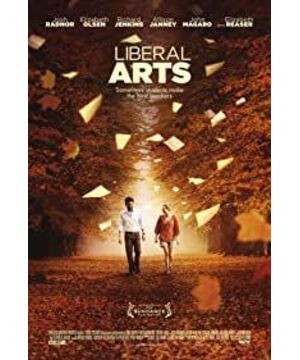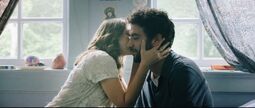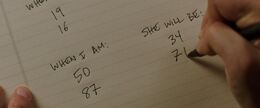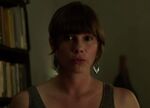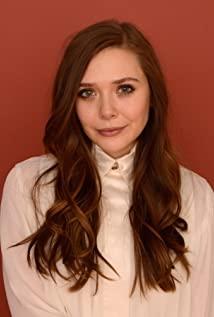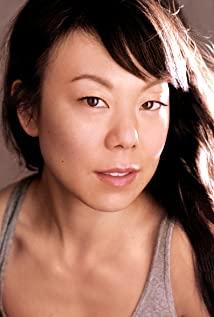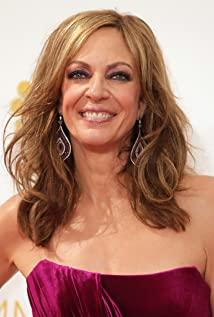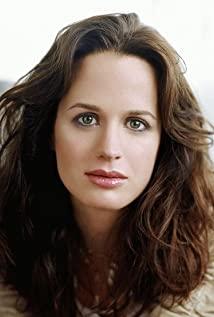In high school, every graduation season, the campus radio will broadcast the Scarborough Fair ("Scarborough Fair"). This "misunderstanding" may simply be because this song is the theme song of the movie "Graduate", and in the Chinese world, Scarborough Fair is often rudely covered with the song title "Graduate".
After I watched this movie admirably when I was young, ten thousand grass mud horses flew in the air: a college graduate who was mentally empty, was teased by a neighbor’s aunt to become a friend, and then fell in love with her daughter. The girl couldn’t accept her mother and daughter. Work together and get married in a hasty way, and the "graduate" abducts the bride at the wedding...Where does this conform to the core values of socialism? It is simply a poisonous weed!
Many years later, I learned: "The Graduate" was born under a special historical background, expressing the resistance of mentally confused "middle-class children" against the adult world in the tide of the American countercultural movement. I think that the head of the campus radio station back then should have been a literary and artistic youth who "doesn't ask for a deep understanding", so he made the stupid decision to use the "Graduate" episode as an emotional catalyst for the graduation season.
If you have to pick a graduation season movie, I think a small independent film "Liberal Arts" at the 2012 Sundance Film Festival fits this theme better than "The Graduate". Although mainland netizens translated it as "Love Songs for Liberal Arts", I think the Hong Kong translation of "Xiaoyuan Xinqu" is more "faithful and elegant".
1. University complex: "Pretty Girl" and "Mr. White Hair"
The main story of "Liberal Arts" is very simple: a 35-year-old literary young man Jesse, although he has graduated for many years, he still misses campus life; one day he was invited to a retirement dinner by an old professor he respected, and he was able to do it again. Back to the long-awaited university campus; during this time, I met Zibby, a 19-year-old sophomore girl. Their hobbies and life ambitions have many similarities. After leaving the campus, they communicated further through correspondence. Cupid’s arrow quietly shot into the hearts of the two, but the 16-year-old age difference seemed to be an obstacle to the development of an intimate relationship between the two...
Overall, this is an American-style little fresh movie, with the romance of "Harry Meets Sally", the beauty of Plato's Love in "84 Charing Cross", and "500 Days with Summer". The sentimental sentiment of "Youda is not satisfied with the lovers above", and the melancholy of "Whether it is in the day and evening" of "Love Before Dawn". Different from other American small and fresh, "Liberal Arts Love Songs" incorporates a strong campus complex. Or, Jesse and Zibby's relationship is just a way for him to cherish the memory of campus life.
As a fixed collocation, liberal arts are generally translated as "liberal arts education" in the Chinese world, and also as "quality education", "general education" and "liberal arts education". The "Liberal Arts" tradition originated in Greece. Etymologically, "Liberal" is related to labor, freedom, and erudition, while "Arts" is a collective term for art. What "Liberal Arts" must solve is people's understanding of freedom, the ability to achieve freedom, and the pursuit of freedom. Responsibility and mission. In fact, Liberal Arts also includes subjects such as mathematics and nature, but it is narrowly understood as "university liberal arts", which is what people often refer to as "useless use."
In the campus folk song "Winter Campus", Gao Xiaosong wrote two typical images about the campus: "beautiful girl" and "Mr. White Hair", and these two images appear in "Love Songs for Liberal Arts". In addition to "beautiful girl" Zibby, Jesse also met "depressed boy" Dean; in addition to "Mr. White Hair" who thought he had been living at the age of 19, there was also a cold and mean female professor. The story and ideology of the film also revolve around the relationship between the male protagonist Jesse and the four young and old.
The first half of the film seems to be a passionate hymn to college life. The ivory tower constructed by "Liberal Arts Education" is also used by the male protagonist everywhere. This also explains the root of his campus complex . He said to the "beautiful girl", "The thing I like the most here is that it gives people a feeling that everything is possible, as if there are infinite choices in front of you. When you leave, life begins, all the things that have been in front of you There is no choice anymore."
He also talked about the "depressed teenager": "Only here do you have time to do this: you can sit down and read a day's book and really communicate with great wisdom and ideas. You can say to anyone here,'I It's a poet' no one will beat you for that." But Jesse's enthusiasm also comforted the 19-year-old boys and girls. When they met the old world, the "boy's merit" was immediately abolished.
2. The battle between heaven and man: "Roll the sheets" and "Talk about life"
"Although it's across Pennsylvania, but we listen to the same music, you are not far from me... Actually, I want to say: I miss you." Zibby wrote and sent an invitation. Jesse knew that this date means two people. The relationship goes further, but the age difference of 16 years old is in front of you.
There is a plot in the movie that shows this contradictory "war between heaven and man": Jesse wrote-when I was 16/19 and she was 0/3, he was so embarrassed that he collapsed; and from another angle-when I was 50/87 Years old, she was 34/71 years old, she seemed to be acceptable, and he finally let out a sigh of relief. So packed up and stepped into the campus for the second time.
Compared with the pleasant experience last time, Jesse and Zibby had disagreements on two issues this time. Jesse saw a vampire's popular novel (it should be "Twilight") in Zibby's bedroom, was amazed, and made a long comment about it. The general idea is that you who read Lu Xun and Yu Hua, how can you read Guo Jingming's "Little Times"? Zibby said that reading this book is just for entertainment, everyone is reading it, why have you never read it? Jesse was going to finish reading the book right away and then argue with her, his pedantic Zibby couldn't laugh or cry.
"Talking about life" has progressed to this point. Zibby, who is thinking ahead, hopes to have further development, but when she is ready to spend the spring evening with Jesse as a virgin, he refuses . There was a sense of guilt in Jesse's heart, and he also called "the sense of guilt before the act as moral" (artistic students can even pull texts like this, hehe). Zibby, who was rejected for "Rolling the Sheets," choked out, "You don't want to sleep with me because you respect me too much. This is simply the worst thing I have ever encountered."
Leaving Zibby's bedroom embarrassedly, Jesse met Judith, a female professor who had ignored him several times before. Judith once taught Jesse English romantic poetry and is the goddess in his heart. After flirting with a few poems, Judith even hinted that Jesse was "rolling the sheets" together, this time he did not refuse. It can be seen from his subconscious that he believes that the older person should be responsible for the relationship between the sexes.
After several hiccups before taking a breath, Jesse will be kicked out of bed by the cynical female teacher; "You don't think we will hug each other next, and then I will read Wordsworth's poem to you?" Zibby still Transitioned from "talking about life" to "rolling the sheets," and Judith only wanted to "roll the sheets", make quick decisions, be ruthless, and severely taunted his naivety of "talking about life".
Jesse was "taken" by the goddess, and the three views were completely destroyed. He also encountered "the worst night in his life".
3. Great foolishness: increasing knowledge increases sadness
Whether it’s the “campus complex” or the “war between heaven and man,” it’s just the emotions surging in "Love Songs for Arts and Sciences". Under the packaging of these emotions, what it wants to explore most is actually the limitation of personal development behind the beauty of the ivory tower. Sex and bondage. At the beginning of the film, I quoted a one-line question from the Old Testament: "Increasing knowledge increases sadness." To put it simply, reading too much book will easily lead to "mental illness."
"You mean things will get bad, and you should be prepared to accept all of this?" "No, liberal arts education has solved all your confusion." In the first half of the film, I talked about the various problems you will encounter when you leave the campus. , Jesse is still comforting Zibby with the "power pill" of liberal arts.
In the second half, he used the same mode of thinking to enlighten the cynical female professor: "You spend so much time on those poems, which will make you more optimistic and hopeful?" He was confused by her bad words. A look: "They are all miserable people, given short-term excellence, just because they have vision and talent, and can be recorded with a pen. Byron may be the happiest one, just because he sees everyone going to (put his dick in everything).”
The female professor roared to Jesse: You only need to hold a few teaching seminars, and you will lose all expectations of human nature. It can be seen that "Poetry and the distance" is still difficult to resolve the "impression in front of you." Perhaps it was the beating of the goddess that played the role. The "old boy" Jesse began to reflect on himself. At this time, he met a female literary youth in the bookstore. She has been paying attention to Jesse who is good at reading, and even knows that he reads every time he goes to the bookstore. The last three pages of a book.
"I started to realize that reading took up too much of my real life time, and I tried to accept other things. But I still read very much, but I realized that reading is limited..." This time, he encountered more than just It is a confidant and a "patient".
The "depressed boy" Dean I met at the university before was actually a manic depression patient. When he called Jesse, Jesse realized that he was likely to commit suicide, so he returned to campus for the third time. Jesse and Dean got married because of a book, and he understood his crux: "Don’t read this, don’t be a genius who died young, it’s a great thing to grow old. You can read other things, such as vampires. What."
Although the "Mr. White Hair" whom Jesse admired at the retirement dinner seemed to have no enthusiasm for campus life, he found it difficult to adapt to the outside world after leaving his job. When he stayed on campus again to play his remaining heat, his teaching position had been replaced by a newcomer. replace. Jesse visited the old professor again and they had the following dialogue: "Do you think this place is like a prison?" "Yes, any place you can't leave is a prison."
In fact, writing a film review of "Shawshank's Redemption" a year after graduation, I was aware of this problem. In the article entitled "Everyone has a Shawshank in his heart", I wrote the following: "In addition to liberating yourself and gaining freedom, reading books will also unconsciously set up various rules and regulations deep in your heart, such as' Master of Heaven and Earth, ``The Gentleman Guqiong''... Reading too much will change the self's "identity imagination" and actively separate many practical activities, thus losing many life possibilities."
4. Ending: It’s not tight and not slow, see you in the adult world
Since it is called "Liberal Love Songs", this relationship should have a beginning and an end. In fact, after the female professor "ran away" in a hurry, Jesse adjusted her self-perception. He wrote in a letter to Zibby: "I only recently realized that I started to grow up, a 16-year-old me. People finally let me understand: the act of being consistent with age is a gift, right?"
When visiting Dean, Jesse also paid a special visit to Zibby. She also treated him candidly and analyzed the reasons for her "thinking ahead".
"I sometimes despise myself, as if there is an older and wise me who is watching this 19-year-old manuscript. This manuscript is full of various potentials, but I have to live a fuller life to catch up with my other self. . I know there will be such a day, but sometimes I hope this process can be faster. Maybe for me, you are the shortcut.”
He doesn't want to grow up, and uses her as a bridge of youth; she encourages him to grow, and uses him as a shortcut to maturity. At the end of the movie, Jesse said to Zibby, "I'm going back to the adult world," Zibby responded: "See you in the adult world."
Liberal arts love music, the end of the song is scattered.
Text/Yang Wenshan
Welcome to follow your personal public account [Swenkanshan (culturestudies)]
View more about Liberal Arts reviews


